Election 2020: States With Tax Questions on the Ballot
On November 3, voters in 17 states weighed in on a variety of proposed changes impacting taxes on everything from property to pot.

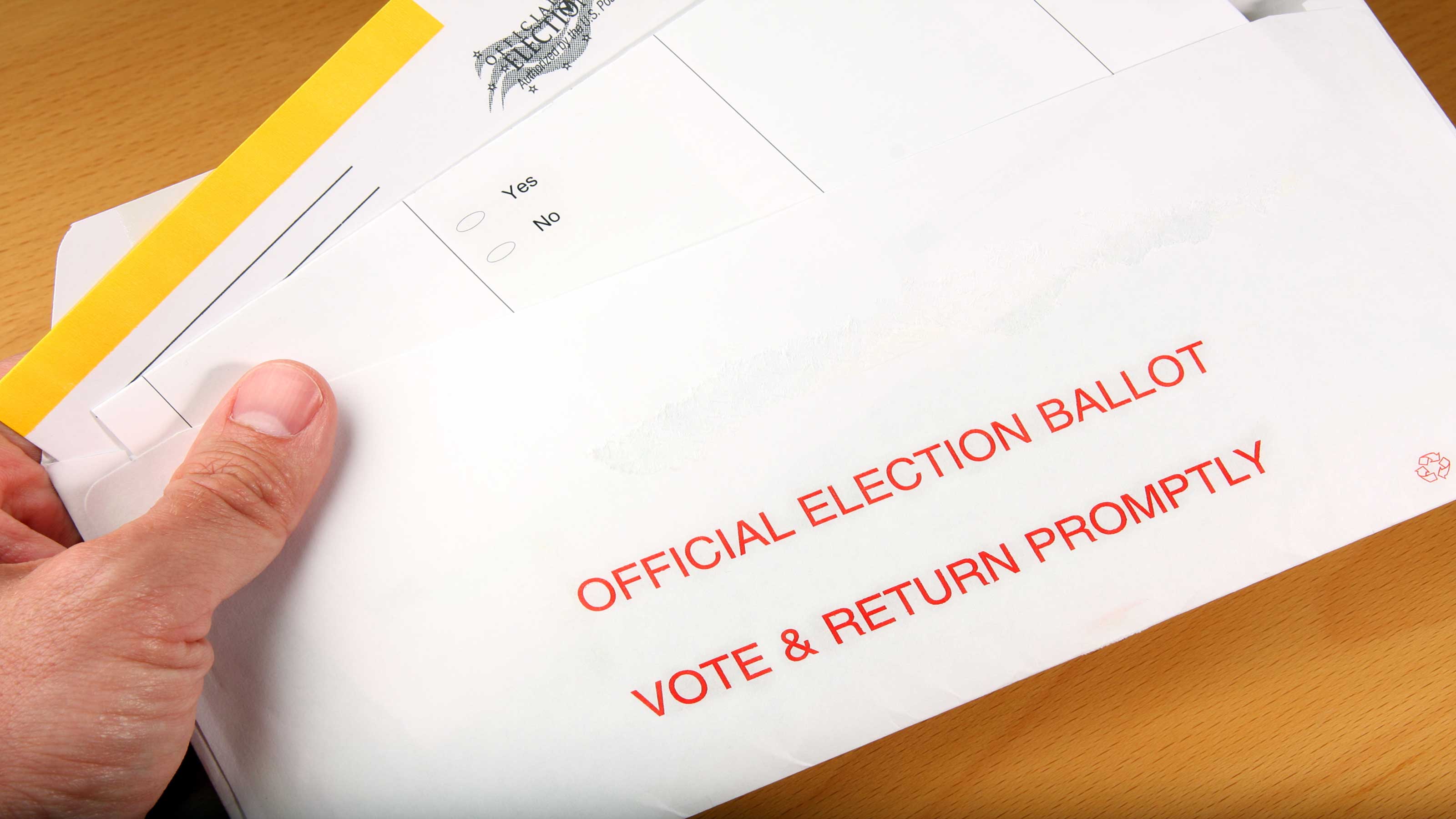
Profit and prosper with the best of Kiplinger's advice on investing, taxes, retirement, personal finance and much more. Delivered daily. Enter your email in the box and click Sign Me Up.
You are now subscribed
Your newsletter sign-up was successful
Want to add more newsletters?

Delivered daily
Kiplinger Today
Profit and prosper with the best of Kiplinger's advice on investing, taxes, retirement, personal finance and much more delivered daily. Smart money moves start here.

Sent five days a week
Kiplinger A Step Ahead
Get practical help to make better financial decisions in your everyday life, from spending to savings on top deals.

Delivered daily
Kiplinger Closing Bell
Get today's biggest financial and investing headlines delivered to your inbox every day the U.S. stock market is open.

Sent twice a week
Kiplinger Adviser Intel
Financial pros across the country share best practices and fresh tactics to preserve and grow your wealth.

Delivered weekly
Kiplinger Tax Tips
Trim your federal and state tax bills with practical tax-planning and tax-cutting strategies.

Sent twice a week
Kiplinger Retirement Tips
Your twice-a-week guide to planning and enjoying a financially secure and richly rewarding retirement

Sent bimonthly.
Kiplinger Adviser Angle
Insights for advisers, wealth managers and other financial professionals.

Sent twice a week
Kiplinger Investing Weekly
Your twice-a-week roundup of promising stocks, funds, companies and industries you should consider, ones you should avoid, and why.

Sent weekly for six weeks
Kiplinger Invest for Retirement
Your step-by-step six-part series on how to invest for retirement, from devising a successful strategy to exactly which investments to choose.
Note: We have updated this article with available results (projected results are provided if final results are not yet available). See the top of each state to learn whether the measures were approved or rejected.
The 2020 election is a vital one for millions of American voters, not just because it's a presidential election year, but because voters in 32 states, the District of Columbia and the U.S. territories were asked to weigh in on a variety of issues that directly impact their communities in the form of ballot initiatives. For those who question the importance of standing in line for hours to vote, consider this: Ballot initiatives enable citizens to cut through the red tape of the lawmaking process and have a direct say on issues that affect their communities and their pocketbooks.
Millions of voters in 17 states were asked to cast their vote on a bevy of proposed tax law changes. This year, several states voted to legalize – and tax – marijuana, while voters in Colorado and Oregon decided whether or not their states should increase taxes on tobacco and e-cigarettes to fund state-run health programs. Alaskans, for the first time, were asked to impose a tax on oil producers who drill in the northern reaches of The Last Frontier.
Even if your state doesn't appear on the list below, take a look at what was proposed because you could see a similar tax measure in an upcoming ballot in your state (states are known to replicate policies from other states whose policies were successfully approved). But keep in mind that voter approval doesn't necessarily translate to action. Some initiatives are purely meant to be advisory (e.g., Washington state's tax questions), and sometimes legislators or executives just plain disagree.
Voters in the 17 states listed below saw statewide, tax-related questions on this year's ballot. Check it out and see what residents in these states decided when they voted on November 3.

Alaska
- Ballot Measure 1: Increases taxes on oil production in the North Slope - REJECTED
- Go to Alaska's full state tax profile
Alaska's sole tax-related ballot measure for the 2020 general election, if approved, would raise taxes in large oil production fields in the North Slope region, home to Point Barrow and Prudhoe Bay. Under Ballot Measure 1, three oil fields that have a lifetime output of at least 400 million barrels of oil and had produced at least 40,000 barrels daily last year would be subject to the tax hike. State legislators predict that the initiative would extract more than $1 billion annually from oil drillers such as ConocoPhillips. What's more, the ballot measure adds a provision that makes those oil companies disclose their proprietary financial information to the public.
That such a cold, remote region of the state could be at the center of a such a hot issue between Alaskan voters and big oil producers is no surprise to those who have been debating taxing producers in the North Slope since drilling began there in 1977. For the first time in Alaska's state history, voters, not legislators, will have the power to decide with a simple "yes" or "no" vote on whether to tax large oil producers for drilling in their state. Proponents of the initiative, known as "Alaska's Fair Share," believe this measure will provide the state with much needed revenue without having to enact new taxes on residents first. Opponents fear that the tax hike initiative would dissuade oil firms from drilling there and threaten future crude oil output in the region, especially at a time when the Covid-19 pandemic is already affecting oil production worldwide.
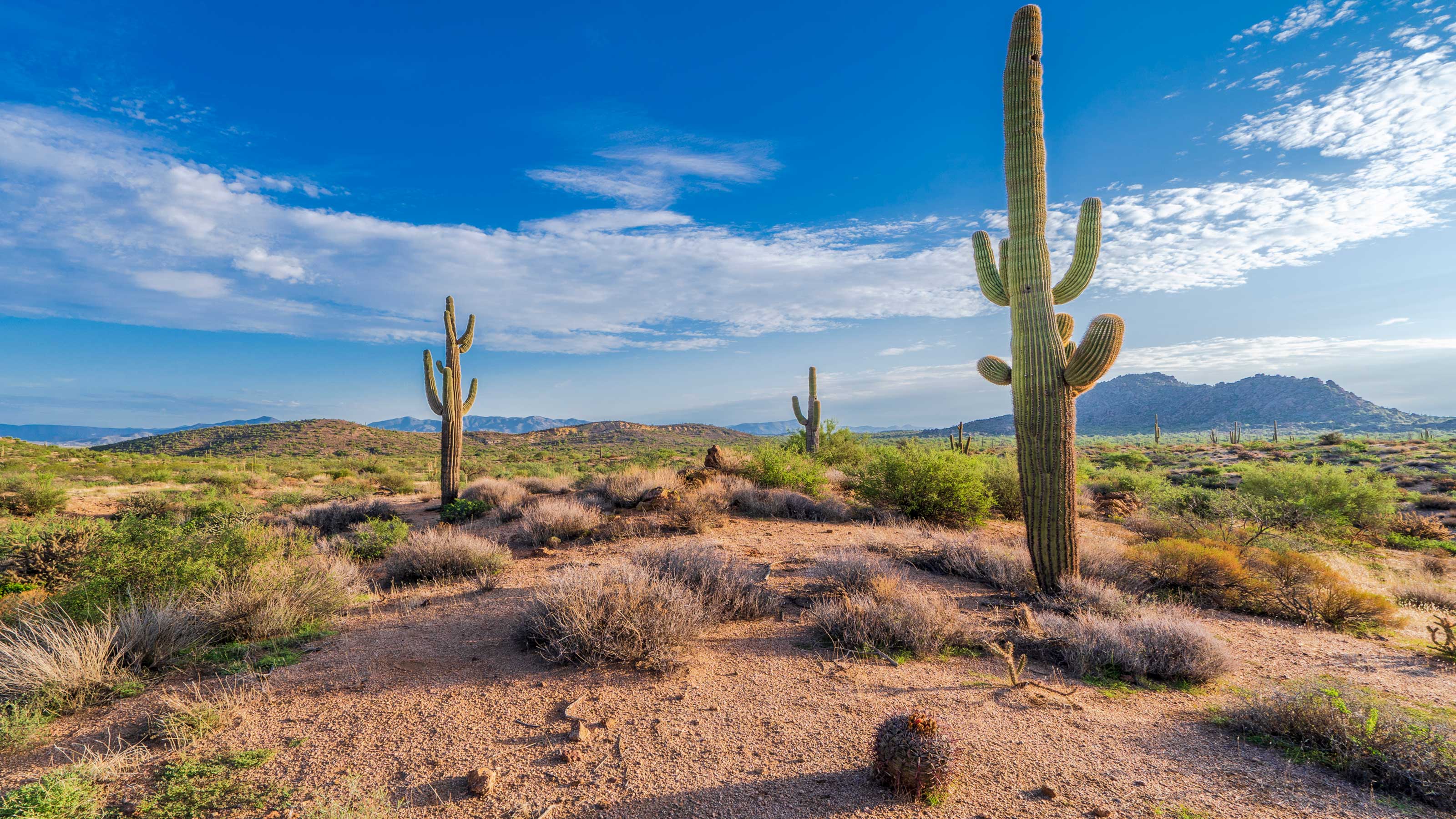
Arizona
- Proposition 207: Legalizes and imposes sales taxes on marijuana - APPROVED
- Proposition 208: Taxes incomes of more than $250,000 to fund public education - APPROVED
- Go to Arizona's full state tax profile
Eleven states and the District of Columbia have fully legalized marijuana. Now, with Proposition 207, voters in the Grand Canyon State will decide whether their state will also legalize the growth, sale and use of marijuana by adults 21 years or older. If approved, Arizona would impose a 16% excise tax on pot sales that will be used to fund public programs such as community colleges, public safety, health and roads. That could generate up to $300 million per year in revenue for the state. Proposition 207 would also amend criminal penalties for marijuana possession, ban pot smoking in public, authorize state and local regulation of licenses and allow the removal of marijuana criminal offenses.
Meanwhile, Proposition 208 proposes a 3.5% tax surcharge on taxable income of more than $250,000 for single taxpayers, or $500,000 for married couples filing jointly, to increase funding for public education. Backed by teachers, parents and education proponents, Proposition 208 would require revenue from the 3.5% income tax to be placed in the Student Support and Safety Fund and would go toward school teachers and support staff salaries, technical programs, retention and mentoring programs for new teachers and scholarships to the Arizona Teacher's Academy. Currently, the highest income tax rate in Arizona is 4.5%. Proposition 208 would increase the top rate to 8%.

Arkansas
Arkansas
- Issue 1: Continues a sales tax for transportation - APPROVED
- Go to Arkansas' full state tax profile
For voters in Arkansas, Issue 1 would amend the state's constitution to continue a temporary 0.5% sales and use tax for highways, bridges, and other surface transportation after the retirement of bonds that were authorized by voters in 2012.
The half-cent sales tax may seem small, but the issue is a big deal because legislators are asking voters to make this so-called temporary tax a permanent fixture in the state's constitution. According to TRIP, a Washington, D.C.-based non-profit surface transportation advocacy group, the average driver in the Little Rock area loses nearly $1,700 a year as a result of driving on bad, congested and unsafe roads. To help lower that cost, Arkansas's governor signed a transportation bill last year that hiked gas and diesel taxes and set aside money from the state's casinos for highway improvements. But some people believe effectively maintaining road repairs and improvements also requires continuation of the 0.5% sales tax approved by voters in 2012. To keep that cash flowing, the governor's plan makes that tax permanent, but only with the blessing of the voters.

California
- Proposition 15: Taxes commercial and industrial properties based on market value - REJECTED (projected)
- Proposition 19: Modifies property tax rules on tax base transfers and inheritance of family homes - APPROVED (projected)
- Go to California's full state tax profile
Two tax ballot issues are up for vote in the Golden State.
Let's start with Proposition 15, which would impose a tax on commercial and industrial properties (excluding commercial agriculture properties) to increase funding for public schools, community colleges and local government services. The proposition would enable the state to tax properties based on market value, instead of purchase price, starting in fiscal year 2022-23. The result is that commercial properties worth more than $3 million would provide between $6.5 billion to $11.5 billion in new funding to local governments, K-12 public schools and community colleges. Residential properties, agricultural land and owners of commercial and industrial properties valued at $3 million or less would be exempt from the property tax change. The ballot question would also exempt small businesses from personal property tax and provide a $500,000 exemption for other businesses.
The second tax ballot measure, Proposition 19, would make it easier for homeowners who are either over age 55, severely disabled or victims of wildfires or other natural disasters to transfer their primary residence's tax base to their replacement residence. It would, for instance, let them transfer the tax base regardless of the location or value of the replacement home. Seniors and disabled Californians would be able to transfer the tax base up to three times.
Proposition 19 would also limit property tax increases on family homes by protecting the right of parents and grandparents to pass on their home to their children and grandchildren for continued use as a primary residence. It would also eliminate tax "loopholes" used by wealthy non-residents, celebrities, trust fund heirs and other trying to avoid paying property taxes on vacation homes, income properties, and beachfront rentals they own in California.

Colorado
- Amendment B: Repeals the property tax balance between residential and non-residential property - APPROVED
- Proposition EE: Increases tobacco and e-cigarette taxes - APPROVED
- Proposition 116: Decreases the state income tax rate - APPROVED
- Proposition 117: Approves new enterprises exempt from the state taxpayer's bill of rights - APPROVED
- Go to Colorado's full state tax profile
Voters in the Centennial State will require more time to complete their ballots in this year's general election with nearly a dozen ballot measures to vote on, four of which are tax related.
The first tax question, Amendment B, would repeal the "Gallagher Amendment," which is a property tax-limiting provision that has provided some $35 billion in tax relief to Colorado homeowners since the early 1980s. Passed in 1982, the Gallagher Amendment stipulates that home values can't account for more than 45% of the state property tax base. That means non-residential property taxes must supply at least 55% of the base. If home values rise faster than businesses properties, for example, the tax rates paid by homeowners are required to drop to maintain the 45%-55% split. The statewide Gallagher ratio has benefitted populated urban areas in the Front Range region of central Colorado, such as Denver, but at the expense of rural communities as lower taxes on rural home values means less tax revenue in those communities. So, less state money for rural communities means less money to fund rural cities and counties, and the fire and police departments, schools and other municipal services in those regions.
If Amendment B is approved, the state legislature would have to freeze property tax assessment rates at 7.15% for residential property and 29% for non-residential property, enabling the state government to provide for future property tax assessment rate decreases through state law. In addition, the amendment would continue to require voter approval for rate increases as part of the state taxpayer's bill of rights.
Proposition EE would establish a tax on nicotine products, such as e-cigarettes, increase cigarette and tobacco product taxes and allocate the revenue towards various health and education programs. Currently, Colorado taxes cigarettes at 20 cents per pack (one cent per cigarette). Additionally, Amendment 35 of 2004 authorized an additional constitutional tax of 64 cents per pack (3.2 cents per cigarette), for a total state-levied cigarette tax of 84 cents. The ballot measure would incrementally raise the cigarette tax rate from $0.84 per pack to $2.64 per pack by July 2027.
Proposition 116 would decrease the state income tax rate for individuals, estates and trusts from 4.63% to 4.55% beginning with the 2020 tax year. On average, that would mean an estimated $37 tax cut for each Colorado resident when they file their 2020 return next year. The ballot initiative would also cut the tax rate for domestic and foreign corporations operating in the state from 4.63% to 4.55%. The tax rate changes are expected to slash state revenue by about $203 million in the fiscal year ending 2021 and $154 million the following year.
Finally, Proposition 117 would require voters statewide to approve new, fee-funded state government enterprises if the new enterprise's projected or actual revenue from fees and surcharges is greater than $100 million within its first five years. Such enterprises, which were established under the Colorado Taxpayer's Bill of Rights (TABOR), are sometimes used to get around the TABOR requirement of voter approval for tax (but not fee) increases. They include public entities like water utilities, parks or toll roads that operate like businesses because they're funded by user fees instead of taxes. If Proposition 117 is approved, it will represent a significant expansion of voter control over Colorado's fiscal policy that would reshape future budget fights and further limit the ability of state lawmakers to create government programs.

Florida
- Amendment 5: Increases the time residents can transfer housing benefits to a new property - APPROVED
- Amendment 6: Allows transfer of a home tax discount to the surviving spouse of a deceased veteran - APPROVED
- Go to Florida's full state tax profile
Two property tax amendments are on the ballot in the Sunshine State this year.
If approved, Amendment 5 would extend – from two years to three years – the time in which a person can transfer "Save Our Homes" property tax benefits in their current home to a new house. Property taxes are based on a home's assessed value. The Save Our Homes rules limit property value increases to a maximum of 3% annually. Approval of the amendment would reduce local property taxes by $1.8 million beginning in fiscal year 2021-22 and would eventually grow to a $10.2 million reduction annually, according to an assessment from the Florida Revenue Estimating Conference.
A "yes" vote for Amendment 6 would allow property tax discounts to be transferred to the surviving spouse of a deceased veteran. The current discount for vets expires upon their death and isn't extended to their spouses. Under Amendment 6, the discount would be in effect until the spouse remarries, sells or otherwise disposes of the property. If the spouse sells the property but doesn't remarry, his or her new primary residence would receive a limited tax discount.

Georgia
- Referendum A: Provides a property tax exemption for certain charities - APPROVED
- Go to Georgia's full state tax profile
Referendum A would exempt property owned by a 501(c)(3) charity, such as Habitat for Humanity, from taxation if the property is owned exclusively for the purpose of building or repairing single-family homes and the charity provides interest-free financing to those purchasing the home.

Illinois
- Amendment: Imposes a graduated income tax - REJECTED
- Go to Illinois' full state tax profile
This constitutional amendment, the only ballot measure in this year's general election, would repeal the Prairie State requirement that any personal income tax be at a flat rate. Instead, the ballot measure would allow the state to impose a graduated income tax.
The amendment would raise taxes for people earning $250,000 or more a year. The current flat personal income tax rate is 4.95%. Under the amendment, anyone making between $250,000 and $500,000 would be taxed at 7.75%. Income from $500,000 to $1 million would be taxed at 7.85%, and income over $1 million would be taxed at 7.99%. People earning between $100,000 and $250,000 would continue to be taxed at the 4.95% rate, while Illinois residents with incomes of $100,000 or less would see a reduced tax rate.
The corporate income tax rate would also be raised to 7.99%.
Some Illinois legislators estimate that the graduated personal tax rates could bring in about $3.6 billion. The new corporate tax rate could bring in an additional $350 million. What's more, the governor's office estimates that 97% of Illinois residents will see a "modest" decrease in their income taxes.

Louisiana
- Amendment 2: Adjusts property tax assessment of oil and gas wells - APPROVED
- Amendment 5: Authorizes a property tax exemption for certain manufacturers - REJECTED
- Amendment 6: Doubles income threshold for property tax freeze - APPROVED
- Go to Louisiana's full state tax profile
Three property tax measures appear on Louisiana's 2020 ballot.
The objective of Amendment 2 is to help tax assessors calculate the value of oil and gas wells. Currently, the Pelican State doesn't let local tax assessors consider the value of the oil and gas that comes from a well when determining the well's fair market value for property tax purposes. As a result, tax assessors have to use other criteria to assess value, such as determining how much it would cost to build a replacement well. That means wells with identical equipment get identical tax assessments, even if one well is producing and the other isn't. Amendment 2 would permit a well's productiveness to be considered when calculating property tax assessments. As a result, oil and gas companies with less productive wells would pay lower taxes on those wells, but they would pay higher taxes on more productive wells.
A vote of "yes" for Amendment 5 would authorize a property tax exemption for new or expanding manufacturing businesses that enter into a cooperative agreement with one or more local taxing authorities to make payments in lieu of property taxes.
Amendment 6 would increase the income threshold to qualify for the property tax "freeze" available to seniors and certain military and disabled persons. The pre-inflation adjusted threshold would increase from $50,000 to $100,000 beginning in 2026. For 2020, the inflation-adjusted threshold is $77,030.36.

Mississippi
- Ballot Measure 1: Legalizes and imposes sales tax on medicinal marijuana - APPROVED
- Go to Mississippi's full state tax profile
In what might be the nation's most surprising ballot measure in 2020, Mississippians will vote to approve the legalization, and taxation, of pot for medicinal purposes. It's a surprise to many given Mississippi's reputation for being an extremely conservative state. And going about approving medical marijuana in a bifurcated ballot may leave many Mississippians somewhat dazed and confused.
Under Ballot Measure 1, Mississippi will ask voters to decide on two versions of the medical marijuana ballot: Initiative 65 and Alternative 65A. First, voters will be asked whether they support medical marijuana by choosing "either measure" or "neither measure" on their ballot. Voting "either measure" is essentially saying yes to legalizing pot for medical purposes. Voters will then be required to say whether they favor Initiative 65 or Alternative 65A.
Initiative 65 allows medical marijuana to be prescribed for 20 specific qualifying conditions (including PTSD, cancer, Parkinson's disease and epilepsy) and authorizes a sales tax on medical weed sales of up to 7%. Alternative 65A restricts the smoking of medical marijuana to terminally ill patients and requires added medical oversight for medical marijuana patients. It does not, however, specify a sales tax rate.

Montana
- I-190: Legalizes and imposes sales tax on marijuana - APPROVED
- Go to Montana's full state tax profile
Will the Big Sky State become the "Big High" State? If Ballot Initiative I-190 is approved, Montana will legalize the possession and use of one ounce or less of marijuana, or 8 grams or less of marijuana concentrate, by adults over 21 beginning January 1. The ballot question would also allow individuals to grow no more than four marijuana plants and four seedlings for personal use in their home, as long as the plants are within an enclosed area with a lock and beyond public view.
Marijuana and pot-infused products would be taxed at 20% of the retail price, too. The revenue from the tax, after subtracting administrative cost, would go to the state's general fund, conservation programs, veterans programs, drug addiction treatment programs, local authorities enforcing the initiative, and healthcare workers.

Nebraska
- Initiatives 429, 430 and 431: Legalizes and taxes casino-style gambling at licensed racetracks - APPROVED
- Go to Nebraska's full state tax profile
Voters in the Cornhusker State will be asked this election year to approve three connected measures to authorize, regulate and tax casino-style gambling at licensed racetrack facilities. Here's the breakdown:
- Initiative 429 would permit gambling at licensed racetracks. Currently, gambling is prohibited in the state, except for the state lottery and authorized raffles intended to raise proceeds for charitable causes.
- Initiative 430 would expand gambling statewide, allowing casino-style gambling at licensed racetracks, and establish the Nebraska Gaming Commission to regulate gambling operations.
- Initiative 431 would impose a 20% annual tax on gross gambling revenue. Of that tax, 70% of the revenue would go to a property tax credit cash fund and 25% would go to counties in which gambling is authorized. The remaining 5% would be split up equally between the state's Compulsive Gamblers Assistance Fund and the state's general fund.
Without the approval of Initiative 429, Initiatives 430 and 431 are dead on arrival.
Proponents of the initiatives note that Nebraskans spend $500 million annually gambling at casinos in bordering states. They estimate that gambling in the state would generate between $50 million to $120 million in new tax revenue.
Of course, this ballot initiative isn't without opposition. They claim casino gambling harms families, exploits the poor and financially desperate, worsens state budgets, raises crime and deceives the public.

New Jersey
- Public Question 1: Imposes state sales tax on recreational marijuana - APPROVED
- Public Question 2: Makes peacetime veterans eligible for property tax deductions and exemptions - APPROVED
- Go to New Jersey's full state tax profile
Public Question 1 would legalize the recreational use of marijuana for adults 21 years and older. It would also legalize the cultivation, processing and retail sale of weed. If approved, the Garden State would be the first state in the Mid-Atlantic region to legalize pot. The ballot initiative would also apply the 6.625% state sales tax to the sale of recreational marijuana, but additional state sales taxes on pot would be prohibited. However, the state legislature would be authorized to permit local governments to enact an additional 2% sales tax on recreational marijuana.
Public Question 2 would expand the state's $250 property tax deduction for wartime veterans to include peacetime veterans as well. It would also make surviving spouses of deceased peacetime veterans eligible for the tax deduction. In addition, the ballot measure would expand the property tax exemption for disabled wartime veterans with total and permanent service-related disabilities to included disabled peacetime veterans with total and permanent service-related disabilities. Surviving spouses would be eligible to receive the exemption, too. But both wartime and peacetime veterans would have to receive an honorable discharge or be released from active service under honorable circumstances to be eligible for either the deduction or exemption.

Oregon
- Measure 108: Increases tobacco and e-cigarette taxes - APPROVED
- Measure 109: Imposes sales tax on psilocybin (mushroom) products - APPROVED
- Go to Oregon's full state tax profile
Health-conscious voters in the Beaver State are likely to vote "yes" for Measure 108, which aims to increase taxes on tobacco products and impose taxes on "inhalant delivery systems," such as e-cigarettes, to fund the state's Medical Assistance Program and other healthcare-related programs. Measure 108 would impose taxes on distributors of tobacco products and other nicotine delivery systems as follows:
- Cigarette taxes would increase from $1.33 to $3.33 per pack;
- A new 65% tax would be imposed on the wholesale sales price of e-cigarettes and other nicotine inhalants (e.g., vaping devices); and
- The cigar tax cap would be increased from $0.50 to $1.
Oregonians will also vote on Measure 109, which would create a program to administer – and tax – sales of psilocybin products (mushrooms and fungi) to adults 21 years or older. Currently, the manufacturing and consumption of psilocybin is illegal under both federal law and state law. The tax would equal 15% of the retail sales price of psilocybin products.

South Dakota
- Constitutional Amendment A: Legalizes and imposes sales tax on marijuana - APPROVED
- Go to South Dakota's full state tax profile
The Mount Rushmore State is joining Arizona, Mississippi, Montana, New Jersey and Oregon this year in voting to legalize and tax the sale of recreational marijuana or other drugs. What distinguishes South Dakota's proposed constitutional amendment from the other states' ballot questions is that South Dakota would be the first state to pass a medical marijuana and recreational cannabis measure on the same ballot. While another South Dakota ballot measure would create a medical marijuana program for patients with defined debilitating medical conditions, Constitutional Amendment A would allow individuals to possess or distribute up to one ounce of marijuana.
Marijuana sales under the proposed amendment would be taxed at 15%. After that revenue is used to cover administrative costs, 50% of the remaining money would be appropriated to fund state public schools and the other half would be deposited in the state's general fund.

Virginia
- Question 2: Exempts motor vehicles owned by disabled military veterans from property tax - APPROVED
- Go to Virginia's full state tax profile
In the Old Dominion, local governments can adopt annual personal property taxes on a motor vehicle's value. However, Virginia voters will be asked this year to approve Question 2, which would exempt one automobile or pickup truck from state and local property taxes for veterans who have a 100% service-connected, permanent and total disability.

Washington
- Advisory Vote 32: Concerns a bill to tax carryout bags - MAINTAIN TAX
- Advisory Vote 33: Concerns a bill to tax heavy equipment rentals - MAINTAIN TAX
- Advisory Vote 34: Concerns a bill to increase the business and occupation tax rate and reduce surcharges - MAINTAIN TAX
- Advisory Vote 35: Concerns a bill to increase the business and occupation tax rate on commercial airplane manufacturers - MAINTAIN TAX
- Go to Washington's full state tax profile
An advisory vote, or advisory question, is a type of ballot measure where citizens can vote on a non-binding question. What distinguishes the advisory vote from other types of ballot initiatives is that the question up for vote won't result in a new, changed, or rejected law or constitutional amendment. So, what's the point of asking voters non-binding questions when all they want to do is vote for president and turn in their ballot? The point is that the advisory question makes the general opinion of the voting population heard on a specific issue. For Washington state, advisory votes are used to advise the state legislature on whether to maintain or repeal a bill they had previously passed.
For this year's election, voters in the Evergreen State will be presented with four advisory votes to either maintain or repeal four tax bills. They are:
- Advisory Vote 32: This vote will advise the legislature to either maintain or repeal a senate bill requiring retailers to charge an $0.08 tax on carryout bags that can't be recycled. The bill was meant to reduce plastic bag pollution and is expected to generate $32 million in revenue over 10 years.
- Advisory Vote 33: This ballot question concerns a bill to tax heavy equipment rentals to consumers. It's estimated that the tax will generate $103 million over the course of a decade.
- Advisory Vote 34: This question is for a senate bill to raise business and occupation tax rates from 1.5% to 1.75% for businesses making more than $1 million a year. The additional tax revenue would be used to increase funding for the Washington College Grant, which helps make college affordable for the state's working-class families. The bill is estimated to generate $843 million over 10 years.
- Advisory Vote 35: This vote is associated with a bill meant to increase the business and occupation tax rate on commercial airplane manufacturers, such as Boeing. It's expected to generate $1.024 billion over a decade.
Profit and prosper with the best of Kiplinger's advice on investing, taxes, retirement, personal finance and much more. Delivered daily. Enter your email in the box and click Sign Me Up.

-
 Quiz: Do You Know How to Avoid the "Medigap Trap?"
Quiz: Do You Know How to Avoid the "Medigap Trap?"Quiz Test your basic knowledge of the "Medigap Trap" in our quick quiz.
-
 5 Top Tax-Efficient Mutual Funds for Smarter Investing
5 Top Tax-Efficient Mutual Funds for Smarter InvestingMutual funds are many things, but "tax-friendly" usually isn't one of them. These are the exceptions.
-
 AI Sparks Existential Crisis for Software Stocks
AI Sparks Existential Crisis for Software StocksThe Kiplinger Letter Fears that SaaS subscription software could be rendered obsolete by artificial intelligence make investors jittery.
-
 States That Tax Social Security Benefits in 2026
States That Tax Social Security Benefits in 2026Retirement Tax Not all retirees who live in states that tax Social Security benefits have to pay state income taxes. Will your benefits be taxed?
-
 Ten States with the Lowest Sales Tax in 2025
Ten States with the Lowest Sales Tax in 2025Sales Tax Living in one of the lowest sales tax states doesn't always mean you'll pay less.
-
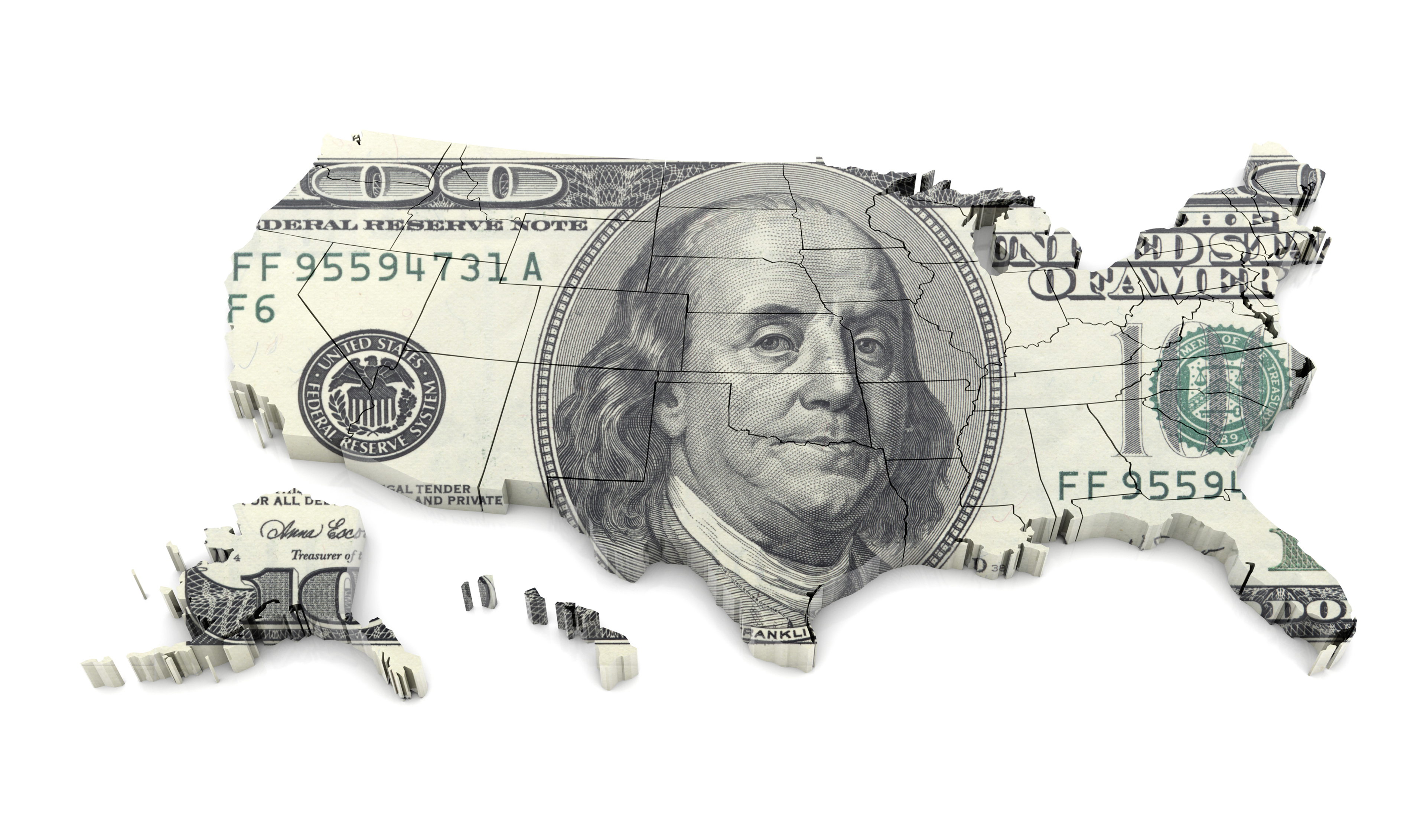 10 Least Tax-Friendly States for Middle-Class Families
10 Least Tax-Friendly States for Middle-Class FamiliesState Tax Here’s what living in one of the least tax-friendly states for middle-class families costs residents.
-
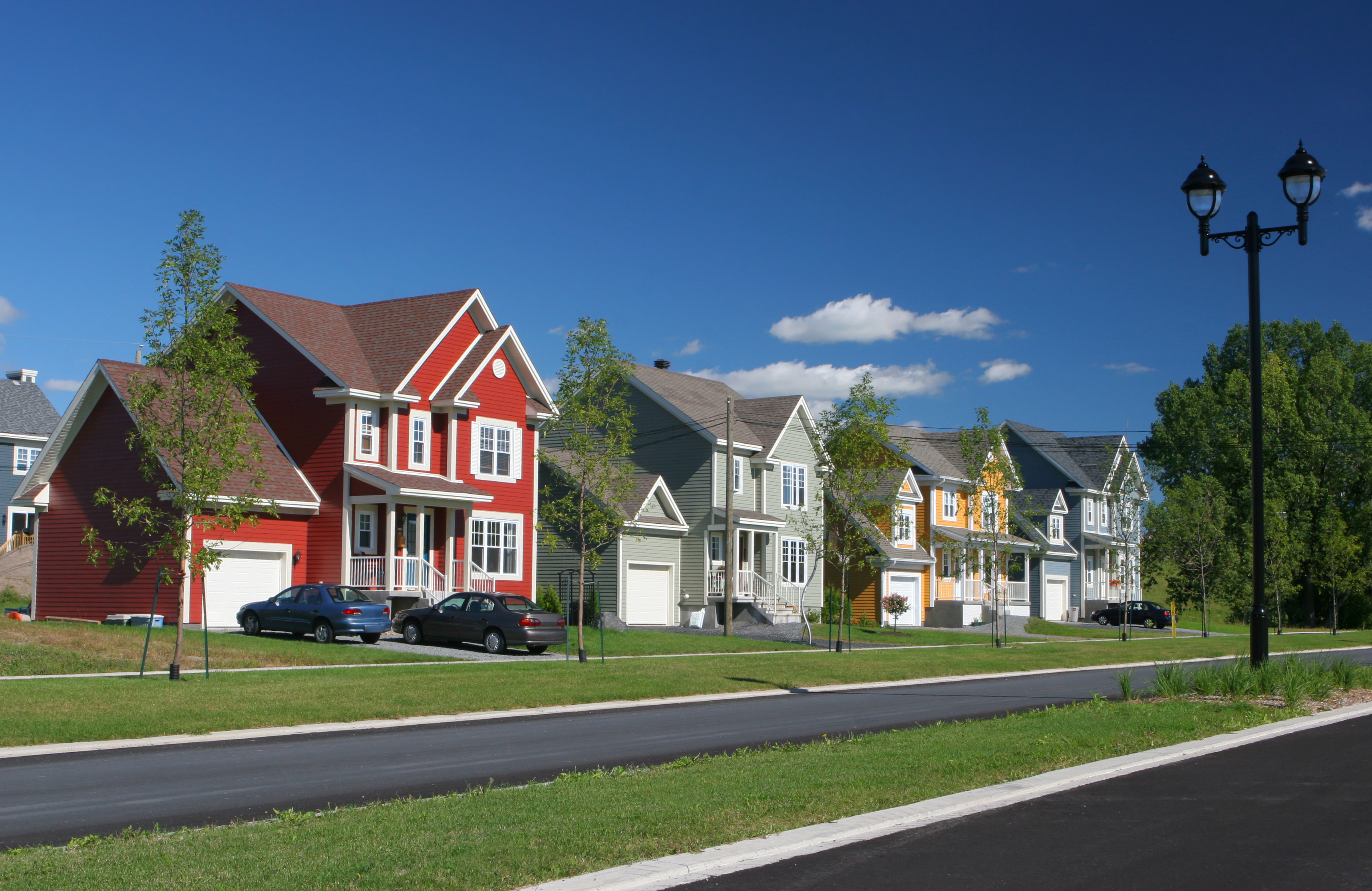 Low-Tax States for 'Middle-Class' Families in 2026
Low-Tax States for 'Middle-Class' Families in 2026State Tax Here are the best states for families with middle incomes (due to low tax burdens).
-
 15 States That Tax Military Retirement Pay (and Other States That Don't)
15 States That Tax Military Retirement Pay (and Other States That Don't)retirement Taxes on military retirement pay vary from state-to-state. How generous is your state when it comes to helping retired veterans at tax time?
-
 5 Tax Deadlines for October 17
5 Tax Deadlines for October 17tax deadline Many taxpayers know that October 17 is the due date for filing an extended tax return, but there are other tax deadlines on this date.
-
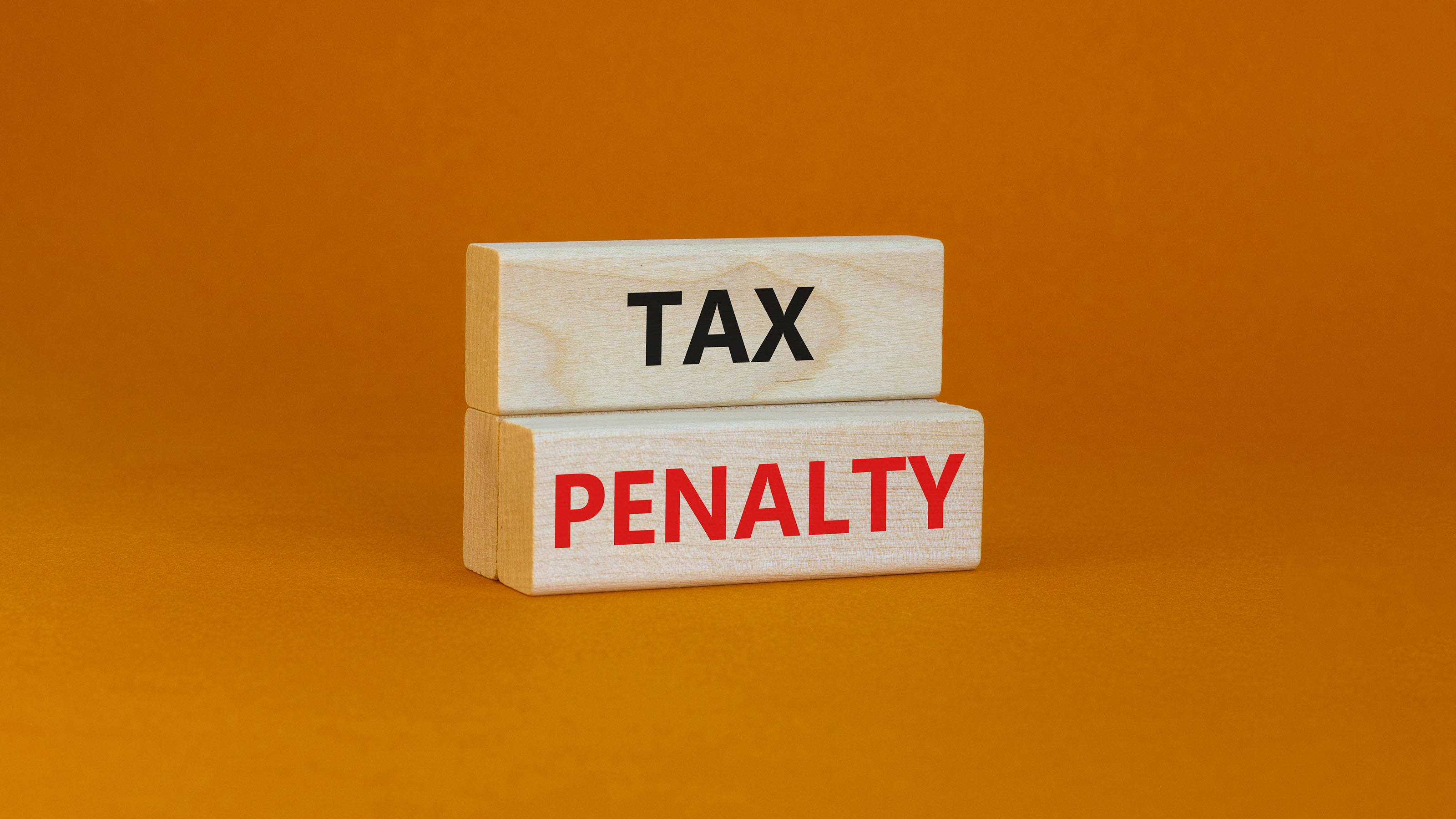 Penalties for Filing Your Tax Return Late
Penalties for Filing Your Tax Return Latetax deadline Stiff penalties await those who didn't file their return (or pay any tax owed) by the tax filing deadline.
-
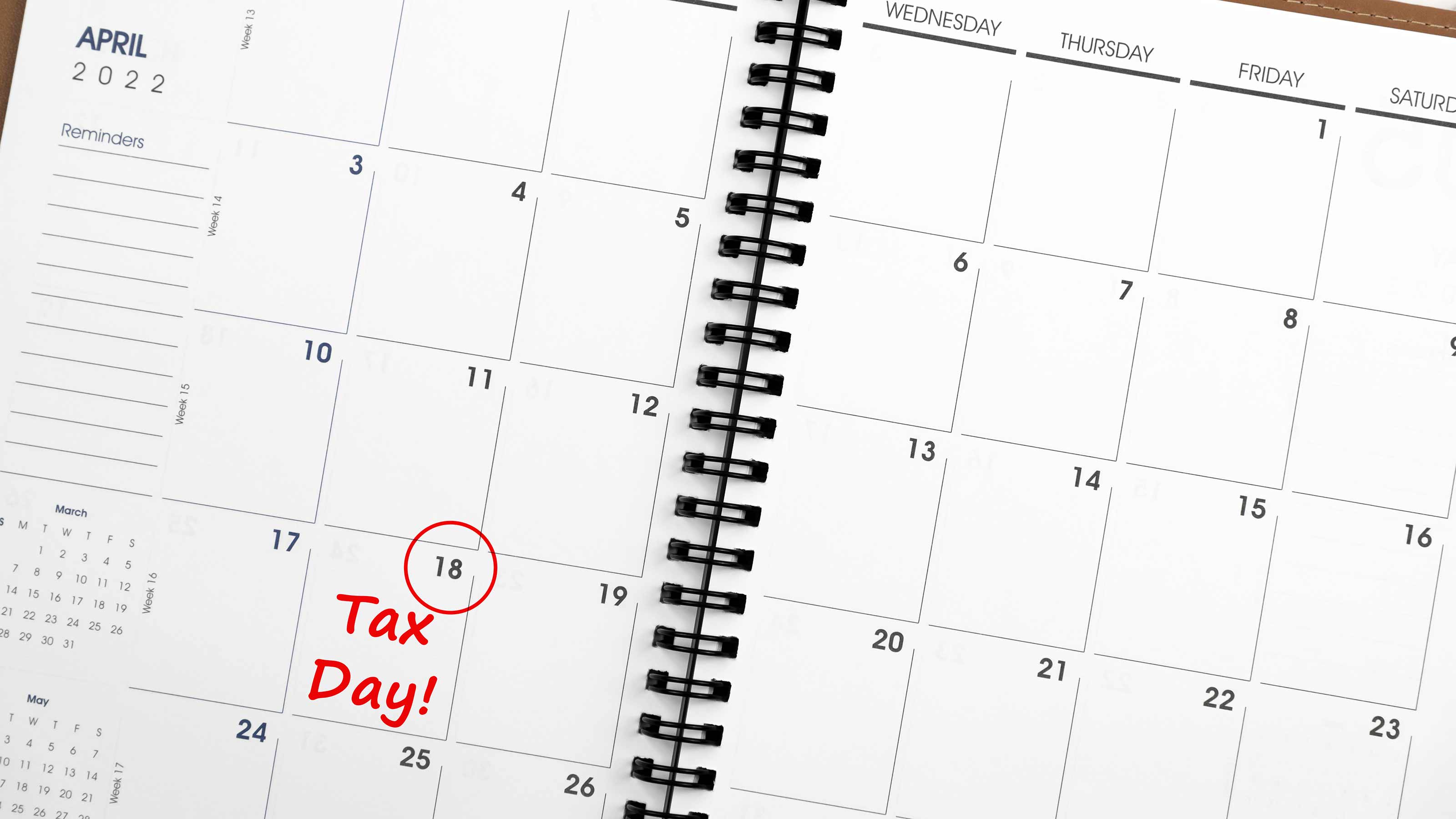 9 Tax Deadlines for April 18
9 Tax Deadlines for April 18tax deadline Between requesting a tax extension, making IRA or HSA contributions, and meeting other tax deadlines, there's more to do on Tax Day than just filing your federal income tax return.
